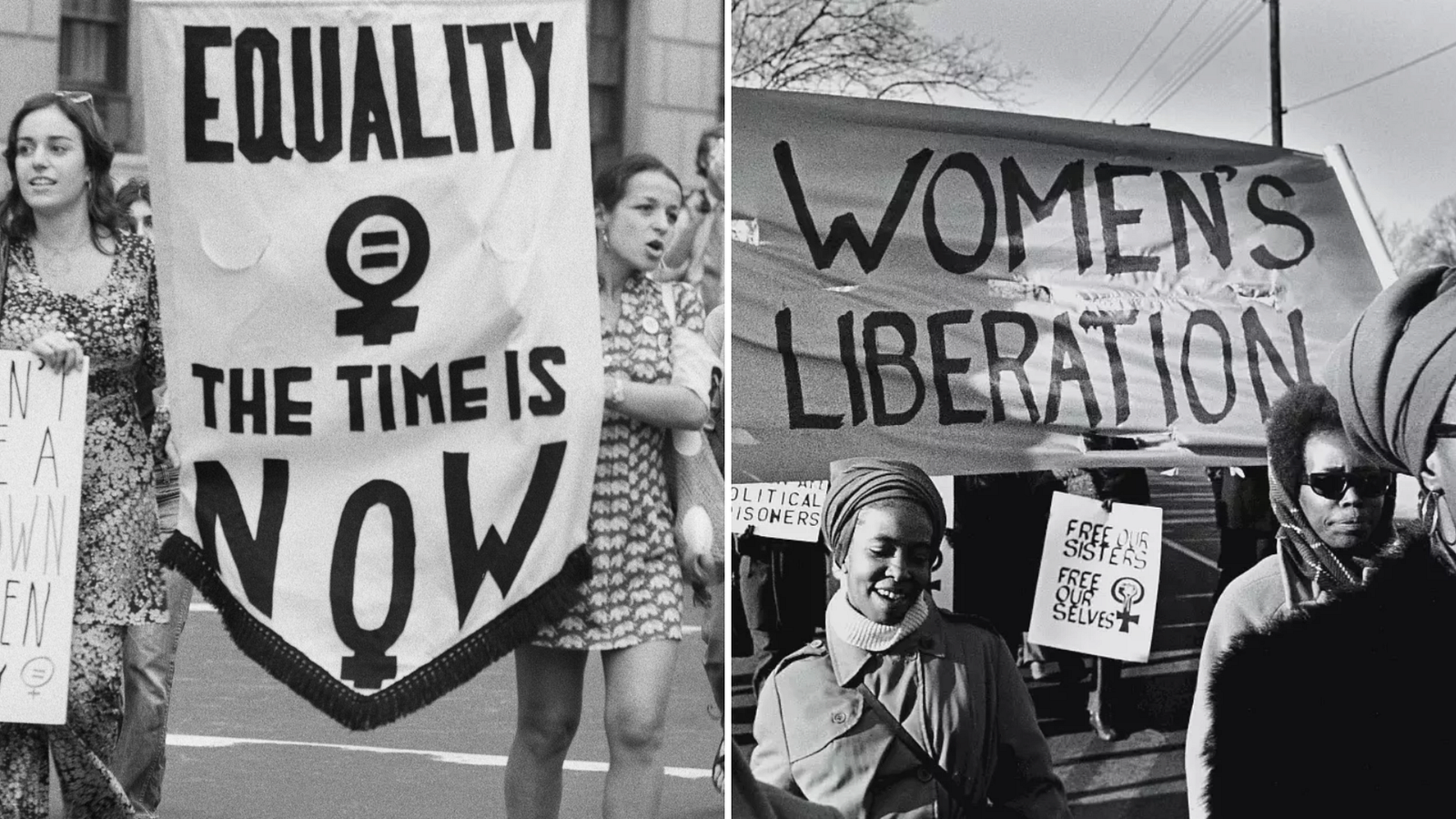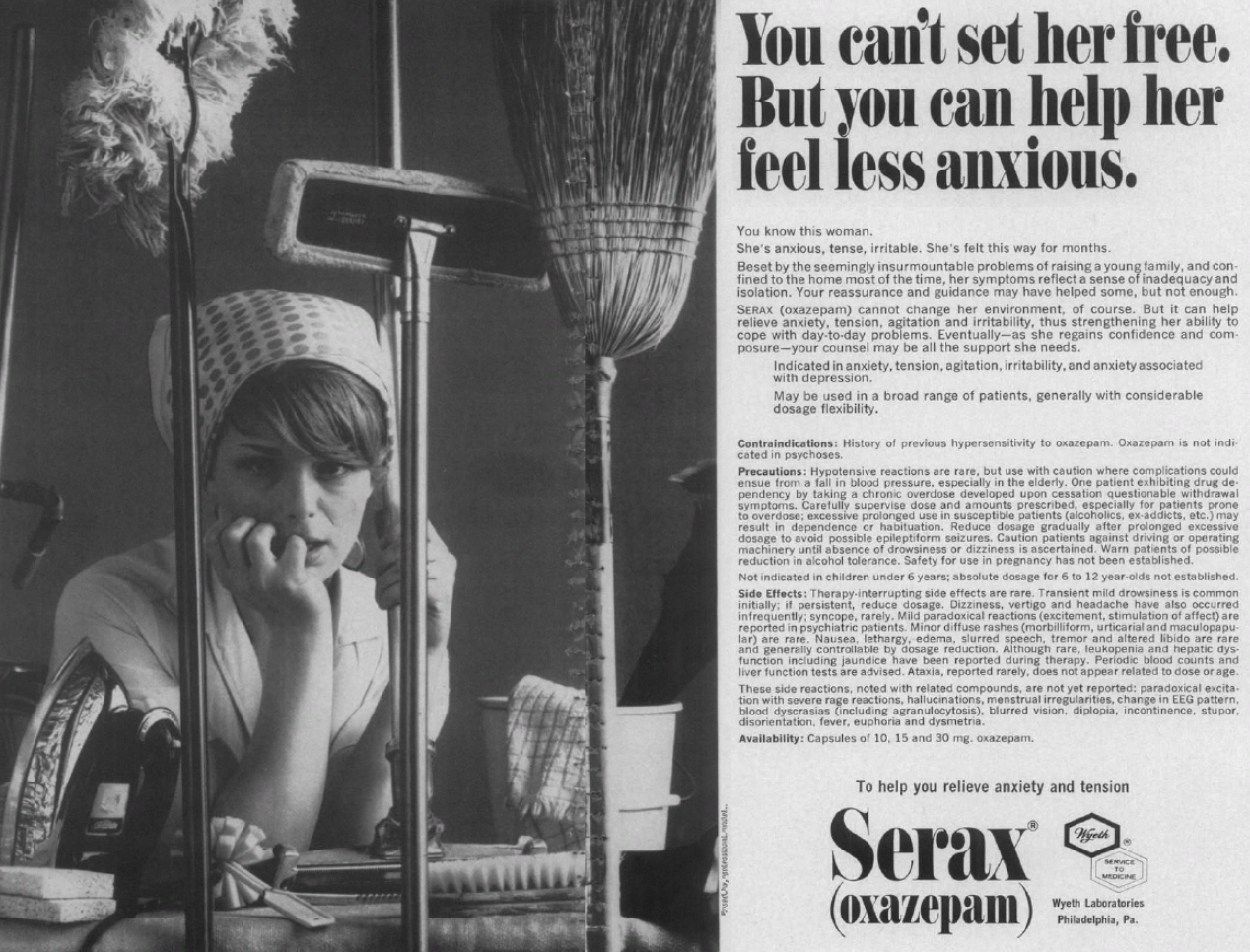At a time when obsession with identity has reached a fever pitch, some people are choosing to opt out of labels altogether. Some are identifying as politically homeless, others are rejecting social tribalism. And in the feminist movement, there seems to be a cyclical trend of women — many of whom once called themselves feminists — rejecting feminism. Canadian journalist Meghan Murphy, founder of the Feminist Current and host of The Same Drugs podcast, is one of these women.


In a Substack post, Murphy explains her reasons for leaving feminism, both as an identity and an ideology.
She explains she long felt constrained in what she could or could not say because feminists were close by, always monitoring and policing her. She also explains how feminism seems to come with the expectation that feminists must also hold the same opinions on a number of other issues that extend beyond feminism.
Meghan writes,
“A group of feminists I’d worked with and supported for many years determined I was “not an ally” because I wouldn’t monitor what members of the general public said at my events, to their liking, and was expected to engage in repeat-after-me-type public statements confirming my commitment to “anti-racism.” (This was really the peak of my “I don’t want to be a part of your cult” trajectory.)”
In Meghan’s case, some radical feminists (notably the ones who are Very Online), hurled all sorts of accusations at her over the years, calling her racist (these allegations have been removed from YouTube otherwise I would have linked to them), right wing (because of her quite reasonable stance on issues like free speech), and an anti-vaxxer (because of her stance on covid authoritarianism), to name a few.
For years Meghan has been fielding criticism from all sides. Radical feminists believed she wasn’t behaving like a good little puppet regurgitating the critical feminist talking points, while gender ideologues have been on their own mission trying to deplatform her, censor her, harass her, and destroy her reputation.
Self-declared feminists, especially those who are in the public eye, have the added pressure of articulating their arguments in a way that satisfies other feminists, lest they risk being chastised at best, or face their own form of cancellation at worst. Who needs enemies when you can have feminists calling you out? It’s a lot of pressure, and it’s unsurprising why Meghan wants to distance herself from it.
Meghan emphasized that she still supports women’s rights, but she will continue to advocate for women in a way that is more issue-based, not ideology-based.
She writes,
“I also started to realize that if I was truly going to be an independent thinker, I had to reject ideology completely, and just take people and policy and politics and ideas as they came, without applying an ideological lens to my analysis. I wanted to be free to work outside the box and with whomever I liked. I wanted to be free to explore ideas with genuine curiosity, not just with the intent to analyze the idea “as a feminist” (or reject it on the same basis).”
I’ve always found it terribly unfair of anonymous women online to relentlessly critique Meghan and other feminists while they continue to shield themselves under the comfort of anonymity. There is no pressure for them to act a certain way or speak on behalf of a ‘community,’ though they are quick to judge how others should behave publicly.
Meghan is not the only one who feels this way.
I’ve spoken to other women in this movement who say they felt immense pressure from other feminists who engage in the same reactionary, mob-style tactics as their gender ideologue counterparts as soon as their fellow feminists says something displeasing to them. This is a major problem and one that will inevitably prevent other women from speaking out, or they might even reject the label altogether — which is exactly what we are seeing here.
A few days before Meghan published her Substack post renouncing her feminism, Terri Strange, another former radical feminist also announced her departure from the ‘feminist’ label.
Like Meghan, Terri has been involved in the radfem movement for many years.
Terri released a couple videos explaining her reasons for moving away from feminism.
In the above video, Terri touches on a number of topics, including identity, the harmonization of the masculine and the feminine, polarization, and the destruction of the soul.
Terri made a number of excellent points worth repeating, but I will highlight just a few that resonated the most, including her remarks on being ‘soul sick’ in modern society.
She says:
“I’m done with any identity anymore. I don’t care. What matters is my soul. I’m concerned for everyone’s [souls]. We cannot sit here and feel this kind of hate towards one another. It’s wrong. . . I let myself hate men specifically. I let myself hate. And that’s not who I am. . . It brings darkness into the world. It makes people sick. It destroys. I realized I got to give that up. I have to give up hate. I have to forgive.”
In the context of feminism, Terri explains that her trajectory as a feminist led to her self-identifying as a victim, thereby removing her own sense of agency (a point that is incompatible with feminism).
“Even at the times I was at my most man-hating…even if they were kind to me.. I think about all the ways that I was cutting myself off from humanity. I was so isolated. I was so disturbed. I was letting my identity as a victim and letting my trauma run my life. Letting that define who I was. Letting that create me. Create some sort of monster.”
In many ways, social justice ideologues and feminists have this in common; they have both become obsessed with identity and their role as a perpetual victim, and at a certain point this obsession becomes a tool for complete self-destruction.
Terri also touched on the disconnect between men and women, and the atomization of society:
“There is this chaotic culture that we live in that’s atomizing people and polarizing people against one another . . . you see there’s a real disconnect between men and women . . . there’s real hostility. There’s this anti-life ideology as well. The anti-natalism thing, encouraging people not to have children . . . I mean if you don’t want to — you shouldn’t, but trying to convince people who do want to have kids that they shouldn’t, where is that going to lead?
Interestingly, Terri has since returned to Christianity.
She explains her decision for re-embracing her Christian faith:
“I had this sense that I was being called back to the Christian faith because there’s so much that I went through and experienced and that is just talked about, and that I remember from the bible. . . Coming to realize that the bible talks about this . . . everything you want to understand about the world is in the bible. The world we are currently living in is the devil’s playground.”
While some women like Terri are turning to religion, others are going further by fully embracing the ‘TradWife’ lifestyle which seeks a return to living traditional values that includes embracing traditional gender roles. The tradwife, who is ultrafeminine, stays at home and serves the household, while her husband, who is the main breadwinner, works outside the home. Supporters who applaud this lifestyle see it as a subversive act that challenges the degeneracy that comes with modern liberal feminism.
Interestingly, the demographic that consumes the most online TradWife content are 18–24 year olds. This suggests that younger generations are moving away from liberal feminism typically pushed in the mainstream.
While some see this battle as one between tradwives and feminists, others argue this misses the point completely. An article from the The Conversation argues that the rise in traditional values is a reaction to runaway neoliberalism, techno-solutionism, hustle culture, and the #BossBabe mentality that seemingly everyone — including, and especially, liberal feminists — seem to promote. There’s certainly some truth to this.
Many tradwife ‘influencers’ share similar stories online. The story goes something like this. Before becoming a tradwife, they lived a hectic lifestyle; they were overworked, overburdened, and overextended. Some worked in the corporate sector, others were in school, while others still were juggling home life, and raising kids all while working.
25-year-old online tradwife influencer Estee Williams can attest to this.
Estee has been involved in a number of ventures. She once did fitness modelling; she moved to Vegas to create a reality TV show with her family; she was in college; and she tried to be an actress, too.
She said she thought her purpose was her career and there was a lot of pressure to be a highly successful, career-driven woman, just like her family members. But it was all too much. She ended up quitting school, got married and became a stay-at-home wife.
Many women, including myself, certainly resonate with these feelings.
I don’t want my life to be singularly focused on my work and climbing the corporate ladder. And career-driven women are finding that being a #BossBabe isn’t living up to the hype, either— and rightly so.
Hustle culture isn’t the natural outcome of a functional, healthy society; it’s the direct result of a perverse society that normalizes hyper-productivity, efficiency, and profit above all else.
According to productivity bros, we must complete tasks faster, produce more output, diversify our income, develop more routines, wake up earlier, read books on stoicism, work out every day, twice a day— rinse and repeat. Successful entrepreneurs spill their ‘productivity’ secrets (Drink spirulina smoothies! Hack your mind with AI! Microdose on mushrooms!) in books that always seem to make the top of best-selling lists. The Boss Babe mentality is the female equivalent of the productivity bro, and both are equally as toxic. Hustle culture is about routine, discipline, productivity — all characteristics required of the Perfect Worker Under Capitalism. No second is wasted. And if you fail, it’s your fault, not your environment.
It’s no wonder why people are resisting this and find themselves on the opposite side, retreating further into trad life that promises them an escape from the grind.
But this promise of a better life also falls short.
If you look at how modern tradwives portray themselves, you may notice there is a disproportionate focus on the visual aesthetic rather than the actual lifestyle.

This picture of TikTok tradwife influencer Estee Williams (right) could have been taken straight from a 1960s advertisement extolling the virtues of being a housewife. Estee has her hair styled, a face full of make-up, and a fitted pink blouse and apron to complete the look. She flashes a dazzling smile, no different than the drawing of the woman on the left. Estee makes tradlife seem so simple and stress-free, just like in the advertisements.
But being feminine is not a style you cosplay — it’s not about having Marilyn Monroe-styled hair or a sultry voice or a pink wardrobe. Feminine energy isn’t something you ‘unlock’ by wearing a cheap dress with flowers on it.
Femininity is about women’s connection to Life, women’s roles as stewards of the Land, women as Protectors, as connected, intuitive Beings, and as Lifegivers. Reclaiming femininity is so much more than a costume you put on.
It’s not about subscribing to arbitrary rules, like not going to the gym without your husband or not leaving the house after dark alone (as Estee does).
The reality is, many housewives of the 1950s and 60s were in the throes of a mental health crisis. They were so miserable that they sedated themselves with alcohol and pills just to cope. In fact, drugs were used so often to prescribe overworked mothers they came to be called ‘Mother’s Little Helper.’
Medical advertisements often pushed drugs like meprobamate that targeted the overworked housewife. Benzodiazepines (benzos) including Valium, Librium, and Serax were some of the more common drugs prescribed to housewives at the time.

This drug ad was common in the 1960s . Drugs like Serax were dangled in front of women to ensure they didn’t shirk their duties as housewives, mothers, and for many, as employees. Better to numb yourself with drugs than fail to fulfil your wifely duties.
“Housewife’s syndrome” was a common disorder diagnosed by doctors to treat housewives who felt like they lacked a sense of purpose.
The medical industry knew that housewives were going through a crisis, but they chose to medicate women needlessly in order to neutralize them rather than look into why they were so unhappy. Regardless of the medical health crisis women were going through, ultrafemininity and domesticity came to dominate American culture. Advertisements of happy families living in blissful domesticity continue to appeal to many today —but they represent a bygone era that just didn’t exist.

There’s also an element of profiteering that comes with the ‘tradwife’ influencer aesthetic that is often overlooked.
Tradwives may claim to willingly opt-out of the workforce, but in their own way, they are participating in a highly-competitive niche influencer market. Because this a niche fad, tradwives often get more attention online. And many have taken to selling e-books, ‘coaching’ classes (e.g., “How to Find ‘High Value’ Men” and “Femininity” coaching), and tutorials. One tradwife, for example, is offering a masterclass called ‘The Art of The Pursuit’, on ‘how to win a man’s heart with femininity and character instead of chasing guys around and doing all the work.’
While they claim to be subversive, tradwives end up playing into the same culture they bemoan. What they are doing is selling a lifestyle, diversifying their income streams, and participating in a society that still values work above all else. In this way tradwives pick and choose which aspects of the ‘traditional’ life they wish to adopt.
Every few years, it seems the pendulum swings too far the other way, and we are seeing this in real time. Young online TradWives say it is their choice — much like liberal feminists — to be tradwives, but we mustn’t overlook the complex and checkered history that comes with this.
Regardless of where you stand, true feminine energy is not about adhering to an aesthetic.
While Meghan, Terri, and Estee may all come from different backgrounds and experiences, they shed light not on how feminism has failed, but on how capitalism has succeeded— and no amount of rejecting feminism will cure these ills. It’s tempting to jump from one tribe to into the arms of another — but the solution is not to retreat into another ideology. We can reject totalitarian technocracy while also keeping true to our feminine energy.
Instead, perhaps the solution may be to combine some elements of the past in a way that makes sense today. This may include creating more tight knit communities, living more simply, rejecting hustle culture, becoming more self-reliant, and finding likeminded people who equally value community and purpose, not on material fulfilment. And it could quite simply mean a return to Nature and all that it brings, including a restoration of the imbalance between men and women, and a return for women to be life protectors and stewards of the land.